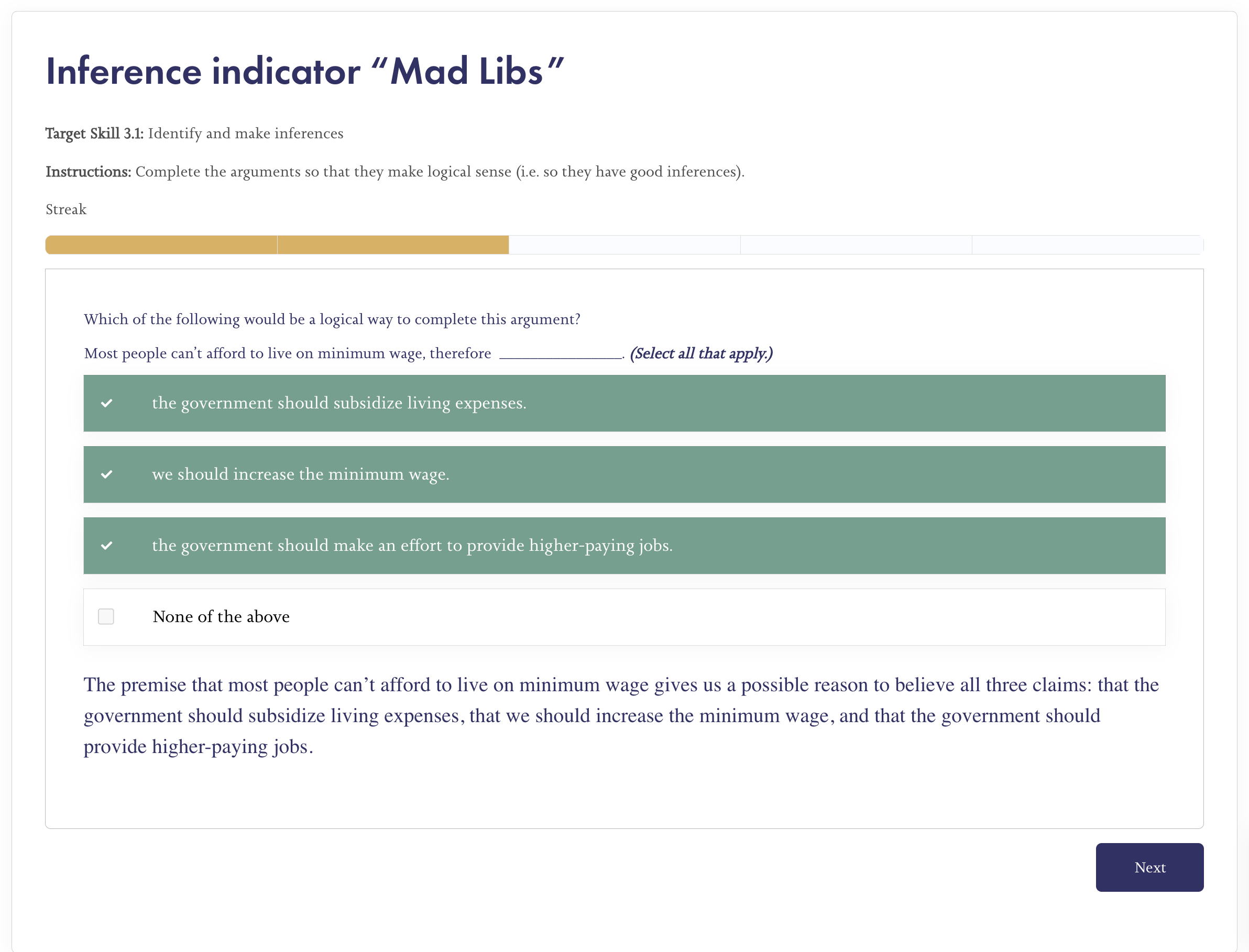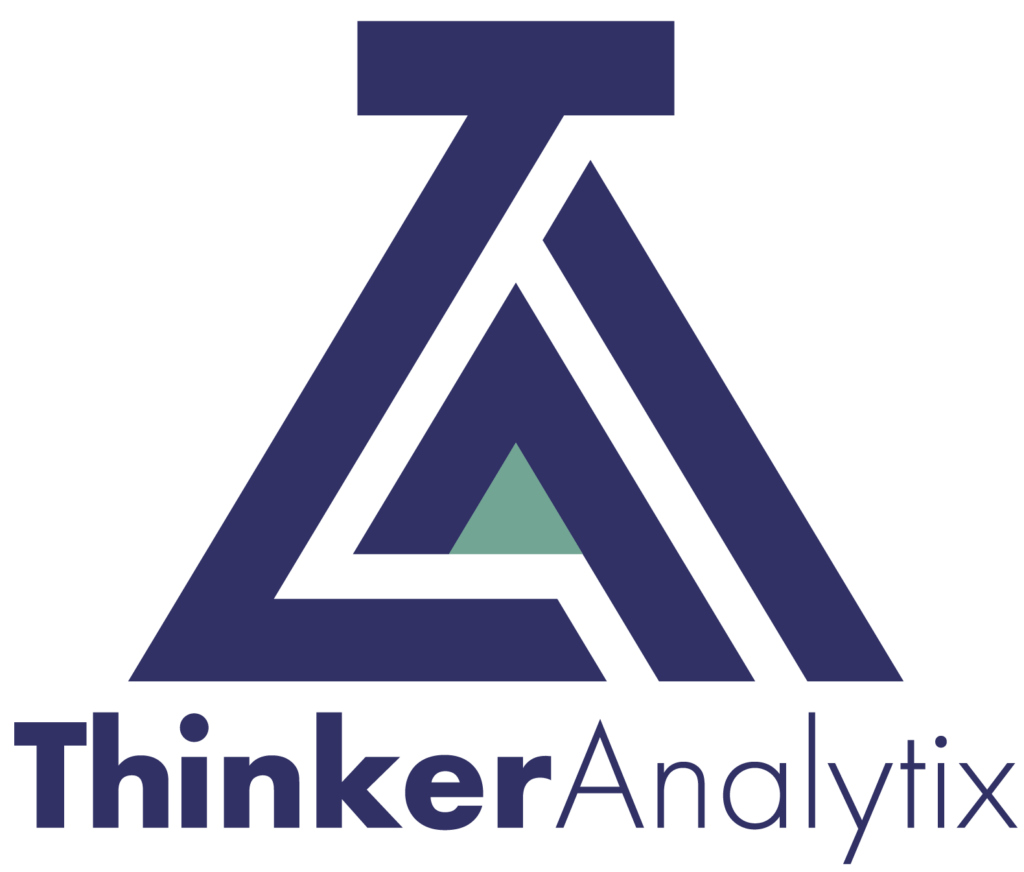
A COLLABORATIVE PROGRAM
FOR FACULTY, STAFF, & LEADERSHIP
SUMMER 2025
JUNE 23-JULY 2, 2025 HELD VIRTUALLY
INSTITUTE GOALS
- View live presentations by faculty currently using thinkARGUMENTS in their courses, big and small, and leverage their insights as you consider how thinkARGUMENTS can support your own instruction
- Take a deep-dive into the research-backed methods of thinkARGUMENTS: Argument Mapping and Systematic Empathy
- Learn how other institutions are building Mapping and Empathy skills across class years, institution-wide programs, courses, and disciplines at scale through the thinkARGUMENTS platform
- Walk through thinkARGUMENTS lesson by lesson, to experience it like a student
- Hear about cutting-edge research in critical thinking instruction from experts in teaching and learning
- Collaborate with your team to redesign existing programs or courses with support from thinkFELLOWS
- Gain a certificate of completion and as much one-on-one support from thinkARGUMENTS staff before, during, and after the term ends as you like!
INTERESTED? FOLLOW THESE STEPS!
STEP 1: BOOK A (BRIEF!) DEMO
Book a 20 minute thinkARGUMENTS demonstration if you haven’t already. A team member will show you the thinkARGUMENTS online program, give an overview of how the program is currently used at institutions globally and answer any initial questions.
You can book a demonstration on your own schedule. Let our team know if you plan to attend the summer institute during the call!
STEP 2: TRY & SIGN UP
Browse the thinkARGUMENTS online program for students if to get a feel. Try taking some practice sets and mastery checks, just like a student would! When you’re ready, submit your name to request the Zoom login information for the summer program.

STEP 3: ATTEND THE INSTITUTE
Once we receive your interest, our team will email you information about how to join the all-group sessions.
There are two session types:
1. Talks by faculty currently using the thinkARGUMENTS platform with students. Talks are scheduled for noon ET each day.
2. Deeper dives into the thinkARGUMENTS lessons and implementation support from ThinkerAnalytix staff.
All sessions will happen on the same Zoom link. You can decide which sessions are best for you! Find the schedule below.
STEP 4: IMPLEMENT & ITERATE
Use thinkARGUMENTS in your courses, and track changes in your students’ skills (we can help!).
Along the way, reach out to ThinkerAnalytix and the network with questions.
SUMMER INSTITUTE SCHEDULE
MONDAY JUNE 23
Peter Antich and Gwen Daugs
Assistant Professors of Philosophy, Dominican University New York
Topic: Using thinkARGUMENTS in General Education and Critical Thinking Courses
J.L. Vertin
Professor & First Year Liberal Arts Seminar Coordinator
Department of Mathematics & Data Analytics, Doane University
Topic: How to use thinkARGUMENTS in program or institution-wide pilots
Part 1
Understanding the DIAGNOSTIC
- High-level overview of the thinkARGUMENTS modules
- Survey of the DIAGNOSTIC module with time for Q&A
Part 2
thinkARGUMENTS 101: Argument mapping & asynchronous learning
- The research behind argument mapping
- How does thinkARGUMENTS work?
- Asynchronous learning with thinkARGUMENTS
- Automatic feedback
- Mastery learning
- Chat function
- Tracking student progress
WEDNESDAY JUNE 25
Heather Phillips
Lecturer and Coordinator of Graduate Teaching
Georgia State University
Topic: Using thinkARGUMENTS in face-to-face and online courses
Gary Comstock
Alumni Association Distinguished Undergraduate Professor
North Carolina State University
Topic: Pre and post-testing with thinkARGUMENTS
Part 1
Understanding the BASICS lessons (0-2)
- Survey of the BASICS module with time for Q&A
Part 2
thinkARGUMENTS 101: How to get started with students
- Setting up a class
- Understanding the instructor dashboard: Groups, Codes, Settings, and Progress
- Setting due dates & best practices re: pacing
- What to do next, before students onboard
MONDAY JUNE 30
Dona Warren
Professor of Philosophy and Critical Thinking Center Head
University of Wisconsin, Stevens Point
Topic: Designing a thinkARGUMENTS pilot at your institution
Reid Comstock
Lecturer, Department of Philosophy
Lecturer, School of Civic Leadership
University of Texas at Austin
Topic: How to Integrate thinkARGUMENTS into Classroom Instruction
Part 1
Understanding the ANALYSIS lessons (3-10)
- What should students be able to do after lesson 6? Lesson 10?
Part 2
thinkARGUMENTS 101: Using argument maps across disciplines
- What do maps enable students to do? How can incorporating maps help you achieve your course goals?
- Survey of argument mapping use-cases
WEDNESDAY JULY 2
Justin Christy
Assistant Teaching Professor & Philosophy as a Way of Life Project Program Coordinator
University of Notre Dame
Topic: How to assign thinkARGUMENTS
Gary Comstock
Alumni Association Distinguished Undergraduate Professor
North Carolina State University
Topic: What to do after your students take thinkARGUMENTS
Part 1
Understanding the ASSUMPTIONS lessons (3*-5*)
- Skills gained in ASSUMPTIONS lessons 3*-5*
- What should students be able to do after lesson 5*?
Part 2
Final Q&A
TRUSTED BY EDUCATORS
READY TO LEARN MORE?
ABOUT US









